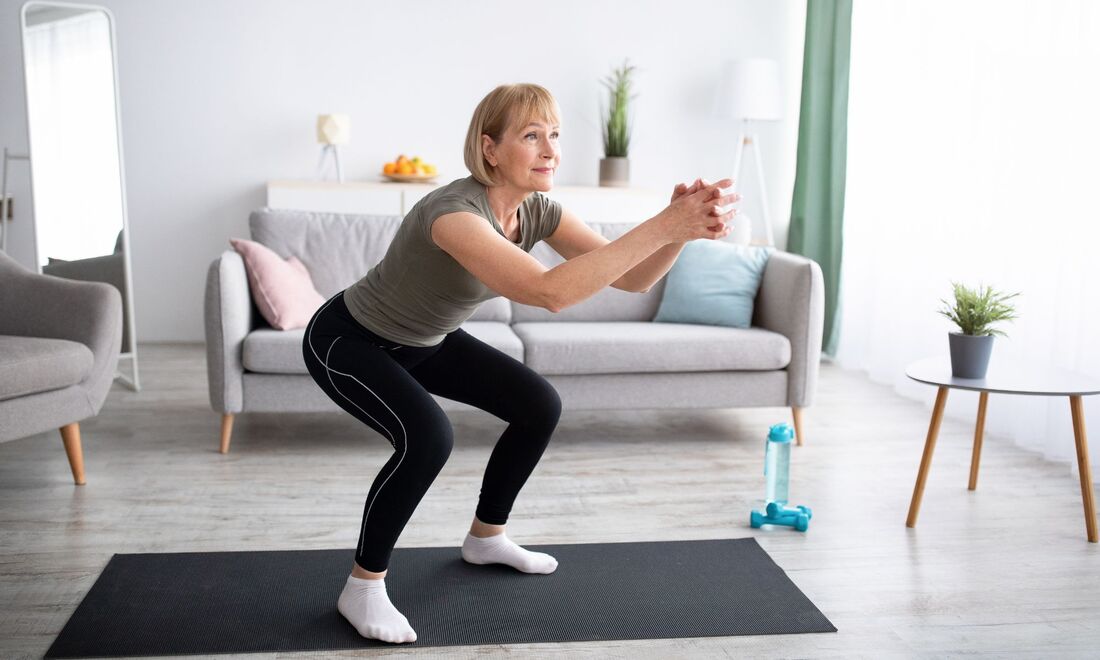In this comprehensive guide, we’ll answer the question “Can stress cause pelvic pain?”, and explore how mind-body techniques, coupled with gentle exercises, can help manage the stress associated with pelvic prolapse.
Can Stress Cause Pelvic Pain?
The emotional weight you carry doesn’t just lead to feelings of anxiety, frustration, and depression. It can affect your physical well-being, including having effects on pelvic issues such as pelvic prolapse.
The chronic nature of this condition can make everyday activities daunting, leading to a heightened stress response – a vicious cycle of stress and pelvic pain.
But Highland Physical Therapy is here to help you. We’ve compiled various mindfulness techniques and gentle stretches that you can incorporate into your day to alleviate both stress and discomfort.
Harnessing Mind-Body Techniques
Mindfulness and Meditation:
Practicing mindfulness and meditation can be incredibly beneficial.
These practices help in cultivating a sense of calm and presence, allowing you to manage stress and reduce anxiety levels.
Regular meditation sessions can also improve your pain tolerance and overall outlook on life.
Yoga for Body and Mind Balance:
Yoga is a fantastic way to bring harmony to your mind and body.
Gentle yoga routines can improve flexibility, strengthen the pelvic floor, and promote relaxation.
Poses like the Child’s Pose, Cat-Cow Stretch, and Bridge Pose are particularly beneficial for pelvic health.
Breathing Exercises:
Deep breathing exercises are a simple yet effective way to reduce stress.
Techniques like diaphragmatic breathing not only help in calming the mind but also assist in managing the physical symptoms of prolapse by relaxing the muscles in the pelvic area.
Gentle Exercises for Pelvic Health
Incorporating specific exercises into your routine can significantly improve the symptoms of pelvic prolapse. Here are a few to consider:
Bridge Pose:
This exercise engages your core, glutes, and pelvic floor, offering strength and a gentle stretch to your hip flexors. Practice this daily for improved pelvic muscle support.
- Lie on your back with your knees bent and feet flat on the floor, hip-width apart.
- Press your feet into the floor as you lift your hips towards the ceiling, forming a straight line from your shoulders to your knees.
- Ensure your glutes and core are engaged, and your pelvic floor is lifted as you rise.
- Hold the pose for a few seconds before lowering back down. Repeat for 8-10 reps.
Squats:
Squats are excellent for overall lower body strength and teach you how to activate your pelvic floor muscles effectively during everyday movements.
- Start with your feet shoulder-width apart, toes slightly pointed out.
- As you squat down, keep your back straight, chest up, and knees aligned with your toes. Imagine you’re sitting back into a chair.
- As you lower down, engage your pelvic floor muscles. As you rise, focus on releasing them.
Inner Thigh Squeezes:
Inner thigh squeezes are an excellent way to engage the muscles that support your pelvic floor.
- Sit on a chair with a soft ball or pillow between your thighs.
- Gently squeeze the ball or pillow, focusing on using your inner thigh and pelvic floor muscles.
- Hold the squeeze for a few seconds and then release.
- Repeat for 10-12 reps.
Your Journey Towards Holistic Well-being
Remember, managing pelvic prolapse is not just about addressing physical symptoms; it’s about nurturing your overall well-being.
Combining mind-body techniques with physical exercises creates a holistic approach to your health, allowing you to manage prolapse more effectively.
Your Last Chance for a Free Pelvic Health Q&A Consultation
As we conclude this month, don’t miss your opportunity to take advantage of our special offer.
A Free Pelvic Health Q&A Consultation awaits you at Highland Physical Therapy.
This one-on-one session is a chance to discuss your concerns, gain insights from experts, and learn practical tips for a strong and healthy pelvic floor.
Let this be the year you take control of your pelvic health with confidence.
Call us at 208-237-2080 to book your consultation and begin your journey towards a healthier, happier you.
And make sure to connect with us on social media! We genuinely love speaking with you all and building a community together.
Check us out on Facebook and Instagram!
Connect with Highland Physical Therapy today – because you deserve the best care!
Additional Free Resources For Pelvic Health
Read Our Blog – Protect Your Pelvic Health With These Effective Strategies
Read Our Blog- What Is Incontinence and How Do You Treat It?
Like Us On Facebook – Highland Physical Therapy Facebook
Follow Us On Instagram – Highland PT Instagram

